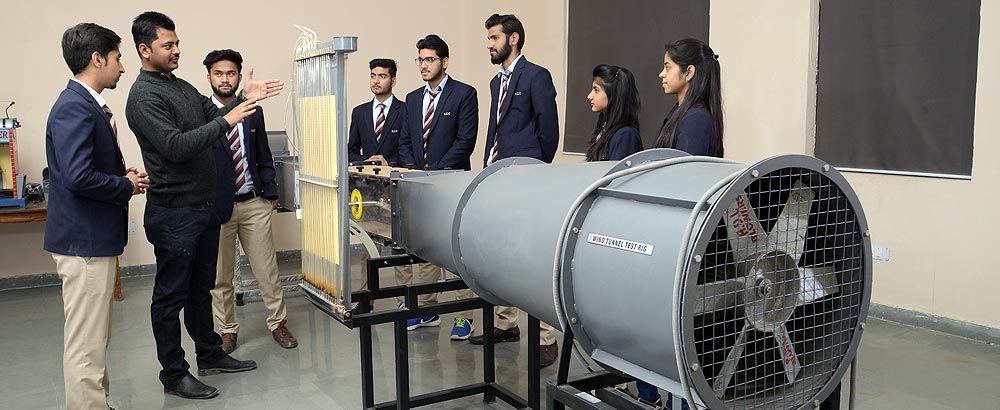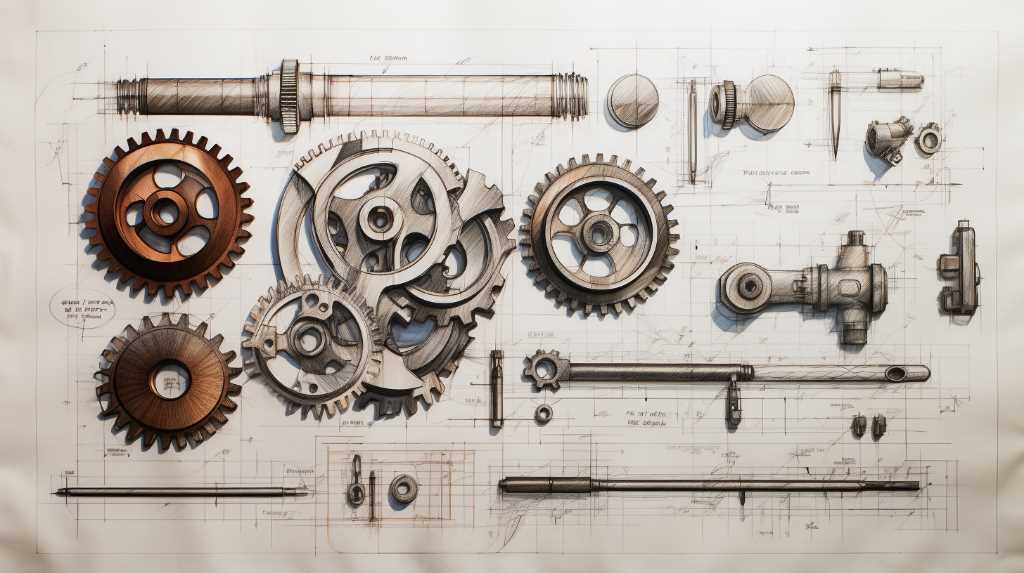Mechanical engineering is a diverse and expansive field of engineering that applies principles of physics, mathematics, and materials science to design, analyze, manufacture, and maintain mechanical systems. This branch of engineering is crucial in various industries, including automotive, aerospace, energy, and manufacturing. To excel in mechanical engineering, students must gain proficiency in a range of core subjects. Here, we explore some of the fundamental subjects that form the backbone of a mechanical engineering curriculum.

1. Mechanics of Materials:
Mechanics of Materials, also known as Strength of Materials, is a subject that examines how different materials deform under various types of stress and strain. It provides insights into material properties such as elasticity, plasticity, and toughness. Understanding these concepts is essential for designing components that can withstand external forces without failure.
2. Thermodynamics:
Thermodynamics is the study of energy, heat, and their interactions. This subject covers the laws of thermodynamics, energy conversion processes, and the principles governing engines and refrigeration systems. Mastery of thermodynamics is vital for engineers working on energy systems, HVAC, and power plants.
3. Fluid Mechanics:
Fluid Mechanics focuses on the behavior of fluids (liquids and gases) in motion and at rest. Key topics include fluid dynamics, pressure, buoyancy, and viscosity. This subject is crucial for designing systems like pipelines, water treatment facilities, and aerodynamic vehicles.
4. Dynamics and Control Systems:
This subject deals with the analysis of forces and torques and their effect on motion. Dynamics and Control Systems explore how to model and control the behavior of mechanical systems. Engineers use these principles to develop systems that maintain stability and performance, such as in robotics and vehicle control systems.
5. Heat Transfer:
Heat Transfer involves the study of heat energy movement due to temperature differences. It encompasses conduction, convection, and radiation. Understanding heat transfer is essential for designing thermal management systems, including heat exchangers and electronic cooling systems.
6. Machine Design:
Machine Design focuses on creating mechanical components and assemblies that meet specific functional requirements. This subject covers the principles of mechanical drawing, material selection, and safety considerations. Engineers use machine design to create everything from simple tools to complex machinery.
7. Manufacturing Processes:
Manufacturing Processes explore the various methods used to produce mechanical components. Topics include casting, machining, welding, and additive manufacturing. A thorough understanding of these processes is necessary for optimizing production efficiency and quality.
8. Material Science:
Material Science is the study of the properties and applications of materials. It covers the structure of materials, phase transitions, and the development of new materials. Knowledge in this area allows engineers to select the appropriate materials for specific applications, enhancing performance and durability.
9. Computer-Aided Design (CAD):
CAD involves the use of computer software to design and simulate mechanical components. It is an essential tool for modern engineers, allowing for accuracy, efficiency, and innovation in the design process. CAD skills are crucial for visualizing and testing designs before physical prototypes are built.

Conclusion:
Mechanical engineering is a multifaceted discipline that requires a strong foundation in various technical subjects. Mastery of these core subjects equips engineers with the skills needed to tackle complex challenges and innovate in the development of mechanical systems and technologies. As industries continue to evolve and demand more sophisticated solutions, the importance of a well-rounded education in mechanical engineering becomes ever more apparent. Whether aspiring to improve energy efficiency, design advanced machinery, or contribute to cutting-edge research, a comprehensive understanding of these subjects is essential for success in the field.
Frequently Asked Questions: Mechanical Engineering
- What is Mechanical Engineering?
Mechanical engineering is a branch of engineering that involves the design, analysis, manufacturing, and maintenance of mechanical systems. It applies principles of physics and materials science for the development of machinery and tools. - What do mechanical engineers do?
Mechanical engineers design, develop, and test all sorts of mechanical devices, tools, engines, and machines. They may work on various projects, from creating small parts for medical devices to large-scale machinery for industries. - What skills are important for a mechanical engineer?
Key skills include problem-solving, creativity, strong mathematical ability, proficiency in computer-aided design (CAD) software, and knowledge of engineering principles and materials science. - What is the future of mechanical engineering?
The future of mechanical engineering is promising with advancements in automation, robotics, and renewable energy systems. Emerging fields like nanotechnology and bioengineering also offer new opportunities. - What are some common industries for mechanical engineers?
Mechanical engineers can work in various industries including automotive, aerospace, energy, manufacturing, robotics, and biotechnology. - What education is required to become a mechanical engineer?
A bachelor’s degree in mechanical engineering or a related field is typically required. Many engineers also pursue further certifications or graduate degrees for specialized roles. - What are the challenges faced by mechanical engineers?
Challenges can include keeping up with rapidly changing technology, meeting safety and regulatory standards, and finding innovative solutions to complex engineering problems. - How does mechanical engineering impact daily life?
Mechanical engineering impacts daily life through the design and production of household appliances, vehicles, heating and cooling systems, and various forms of transportation and manufacturing equipment. - What is the role of computer-aided design in mechanical engineering?
CAD software is crucial for creating detailed 3D models and simulations of mechanical components, allowing engineers to test and refine their designs before production. - How important is sustainability in mechanical engineering?
Sustainability is increasingly important, with engineers focusing on creating energy-efficient systems and using renewable materials to reduce environmental impact.

